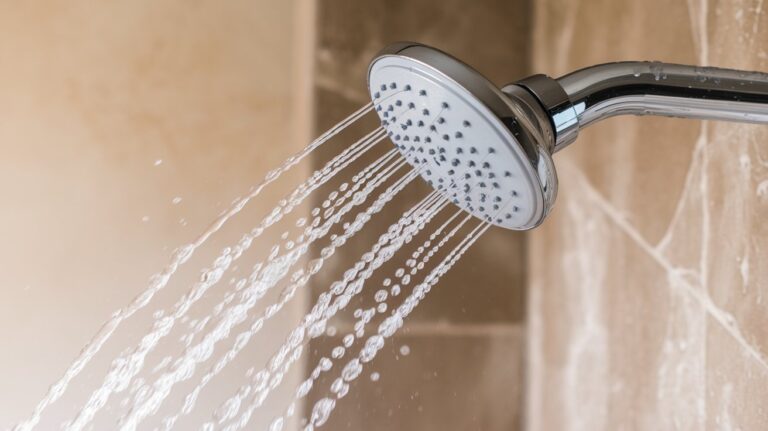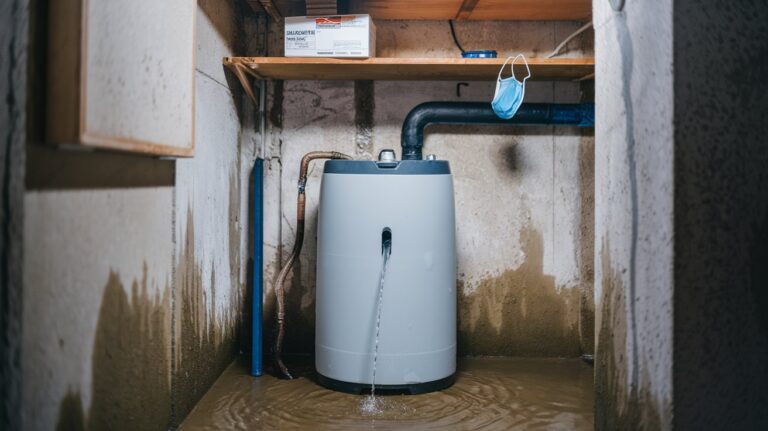Best Home Water Testing Kits 2025: Accurate Lab-Grade Tests
Finding the best home water testing kit is crucial for ensuring your family’s health and safety in 2025. With growing concerns about water contamination across the United States, these professional-grade testing kits provide lab-accurate results from the comfort of your home, helping you identify potentially harmful contaminants in your drinking water supply.
Understanding Home Water Testing Kit Accuracy
Modern home water test kits have achieved remarkable accuracy levels, with top-tier options delivering results comparable to professional laboratory testing. These kits typically achieve 95-99% accuracy rates when testing for common contaminants like lead, bacteria, chlorine, and pH levels. The key lies in understanding that different kits excel at testing different parameters.
The most accurate home water testing kits use certified laboratory analysis, where you collect samples at home and send them to EPA-certified facilities. Strip-based kits provide immediate results but may have slightly lower accuracy for certain contaminants. Professional water test kits often combine both methods to give you comprehensive coverage of your water quality concerns.
Lab-Based vs At-Home Testing Methods
Lab-based home water testing kits offer superior accuracy by utilizing the same equipment and methodologies used by municipal water systems. These kits involve collecting samples in sterile containers and shipping them to certified laboratories, typically providing results within 5-10 business days with detailed analysis reports covering dozens of potential contaminants.
Instant Test Strip Reliability
Instant test strips provide immediate feedback and are particularly effective for basic parameters like pH, hardness, chlorine, and iron levels. While convenient, these drinking water test kits are best used for routine monitoring rather than comprehensive contamination detection, achieving accuracy rates of 85-95% for the parameters they’re designed to measure.
Top-Rated Home Water Testing Kits for 2025
The best home water testing kits available in 2025 combine comprehensive testing capabilities with user-friendly collection methods and detailed reporting. Leading brands have invested heavily in improving accuracy and expanding their testing panels to address emerging contaminants like PFAS and microplastics that have become major concerns in American water supplies.
When selecting a home water testing kit, consider factors such as your water source (municipal vs. well), specific contamination concerns in your area, turnaround time for results, and the comprehensiveness of the testing panel. The top-performing kits offer testing for 100+ contaminants and provide easy-to-understand reports with actionable recommendations.
Tap Score Advanced City Water Test
The Tap Score Advanced City Water Test stands out as the most comprehensive option for municipal water users, testing for over 120 contaminants including heavy metals, bacteria, pesticides, and emerging contaminants. Priced around $290, this professional water test kit provides laboratory-grade analysis with detailed explanations and health-based recommendations for each detected contaminant.
Safe Home Ultimate Drinking Water Test Kit
The Safe Home Ultimate drinking water test kit offers excellent value at approximately $150, testing for 200+ contaminants through certified laboratory analysis. This kit is particularly popular among homeowners due to its comprehensive testing panel and clear, actionable reporting that includes specific health implications and treatment recommendations for detected issues.
Varify Premium Drinking Water Test Kit
The Varify Premium Drinking Water Test Kit focuses on the most critical health-related contaminants, testing for 40+ parameters including lead, bacteria, pesticides, and heavy metals. At around $120, this kit strikes an excellent balance between comprehensive testing and affordability, making it ideal for families seeking reliable water quality assessment.
Best Home Water Testing Methods by Water Source
Your water source significantly influences which home water testing kit will provide the most relevant results. Municipal water users should focus on kits that test for chlorine byproducts, lead from pipes, and industrial contaminants, while well water users need comprehensive testing for bacteria, nitrates, and naturally occurring minerals that could pose health risks.
The best well water test kit options typically include bacterial testing, which is crucial for private wells that don’t receive regular municipal treatment. These specialized kits often test for coliform bacteria, nitrates from agricultural runoff, and minerals like iron and manganese that can affect taste and safety.
Municipal Water Testing Priorities
For city water users, the best home water test kit should focus on disinfection byproducts, lead leaching from pipes, and industrial contaminants that may survive treatment processes. Priority testing includes chlorine, chloramines, trihalomethanes, and heavy metals, particularly in older homes with lead plumbing or service lines.
Well Water Testing Essentials
Private well owners need comprehensive well water test kits that include bacterial testing, nitrate analysis, and mineral content evaluation. The EPA recommends annual testing for bacteria and nitrates, with periodic testing for pesticides, heavy metals, and volatile organic compounds based on local contamination risks and land use patterns.
PFAS and Emerging Contaminant Testing
PFAS (per- and polyfluoroalkyl substances) testing has become increasingly important as these ‘forever chemicals’ are detected in water supplies across the United States. Specialized PFAS water test kits are now available from leading manufacturers, typically costing $200-400 but providing crucial information about these persistent contaminants that conventional testing may miss.
The Tap Score PFAS Water Test represents the gold standard for PFAS detection, testing for 44 different PFAS compounds using EPA Method 537.1. This specialized testing is particularly important for residents near airports, military bases, or industrial facilities where PFAS contamination is more likely to occur.
Cost-Effective Water Testing Options
Budget-conscious consumers can find effective home water testing kits starting around $25-50 for basic parameter testing. While these entry-level options may not provide the comprehensive analysis of premium kits, they effectively test for the most common concerns like pH, hardness, chlorine, bacteria, lead, and pesticides.
Many hardware stores and home improvement retailers offer free water testing services or low-cost basic testing kits. Home Depot, for example, partners with local water treatment companies to provide free basic water analysis, though these tests typically cover fewer parameters than comprehensive lab water test kits.
Free Testing Resources and Limitations
While some retailers offer free water testing, these services typically focus on selling water treatment systems rather than providing comprehensive health-focused analysis. Free tests usually cover basic parameters like hardness, chlorine, and iron, but may miss critical contaminants like bacteria, lead, or pesticides that require specialized testing methods.
Mid-Range Kit Value Analysis
Mid-range home water testing kits priced between $75-150 often provide the best value, offering comprehensive testing for 50-100+ contaminants through certified laboratory analysis. These kits typically include all major health-related parameters while maintaining affordability for regular testing schedules recommended by health authorities.
How to Collect Water Samples Properly
Proper sample collection is crucial for accurate results from your home water testing kit. Most kits provide detailed instructions, but key principles include using sterile collection containers, running water for 2-3 minutes before collecting, avoiding contamination during collection, and shipping samples promptly to maintain sample integrity.
For bacterial testing, sterilization of the faucet and proper sampling technique are especially critical. Many professional water test kits include step-by-step video instructions or phone support to ensure samples are collected correctly, as improper collection can lead to false positive or negative results.
Understanding Water Test Results
Interpreting results from your home water testing kit requires understanding EPA maximum contaminant levels (MCLs) and health advisories. The best testing services provide results in easy-to-understand formats, comparing detected levels to federal standards and explaining potential health implications of any contaminants found above recommended levels.
Modern lab water test kits typically provide color-coded results, detailed explanations of each parameter tested, and specific recommendations for addressing any water quality issues. Some services include consultation with water quality experts to help interpret complex results and recommend appropriate treatment solutions.
Related video about home water testing kit
This video complements the article information with a practical visual demonstration.
Most asked questions about home water testing kit
Are home water test kits accurate?
Yes, quality home water test kits can be highly accurate, with lab-based kits achieving 95-99% accuracy rates. The key is choosing EPA-certified laboratory analysis over simple test strips for comprehensive contamination detection. Professional-grade home kits use the same testing methods as municipal water systems.
What is the best way to test your water at home?
The best approach is using a comprehensive lab-based home water testing kit that tests for 100+ contaminants. Collect samples according to kit instructions, ship to certified laboratories, and receive detailed results within 5-10 days. This method provides the most accurate and comprehensive water quality assessment.
What is the best home water test kit?
The Tap Score Advanced City Water Test is widely considered the best comprehensive option, testing 120+ contaminants for around $290. For budget-conscious users, the Safe Home Ultimate kit offers excellent value at $150, testing 200+ parameters. Choose based on your water source and specific contamination concerns.
Does Home Depot test water for free?
Home Depot partners with water treatment companies to offer free basic water testing, but these tests are limited in scope and designed to sell treatment systems. For comprehensive health-focused testing, invest in a certified home water testing kit that covers bacteria, heavy metals, and other critical contaminants.
How often should I test my home water?
Test municipal water annually or when taste, odor, or color changes occur. Test private wells annually for bacteria and nitrates, with comprehensive testing every 3-5 years. If contamination is detected, retest after implementing treatment solutions to verify effectiveness.
Can home water test kits detect PFAS?
Specialized PFAS testing kits are available from companies like Tap Score, testing for 44 different PFAS compounds using EPA methods. Standard home water test kits typically don’t include PFAS testing, so you’ll need a dedicated PFAS test kit costing $200-400 for this specialized analysis.
| Testing Method | Accuracy Rate | Best Use Case |
|---|---|---|
| Lab-Based Comprehensive Kits | 95-99% | Complete water quality assessment |
| Instant Test Strips | 85-95% | Quick basic parameter checking |
| PFAS Specialized Testing | 99% | Forever chemical detection |
| Bacterial Testing Kits | 97-99% | Well water safety verification |






